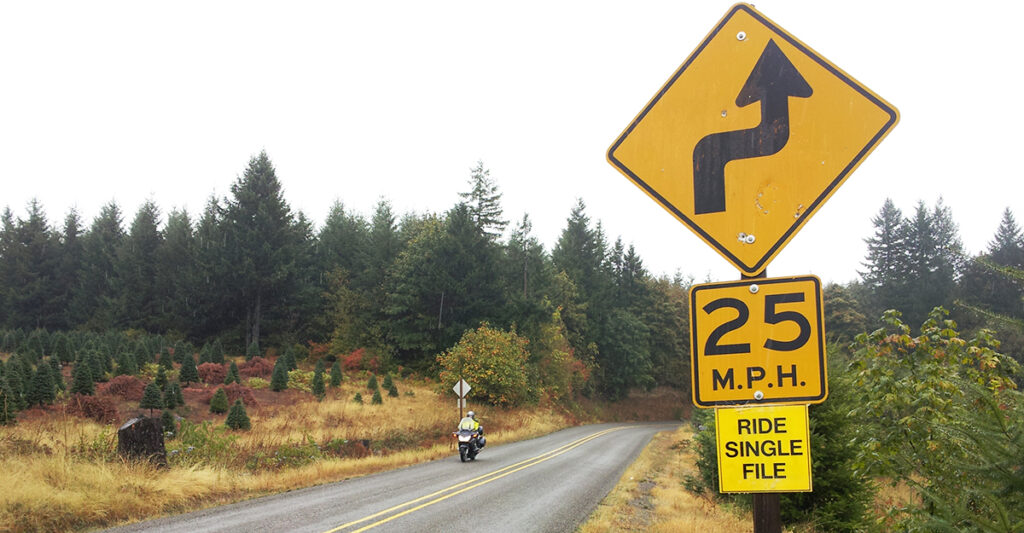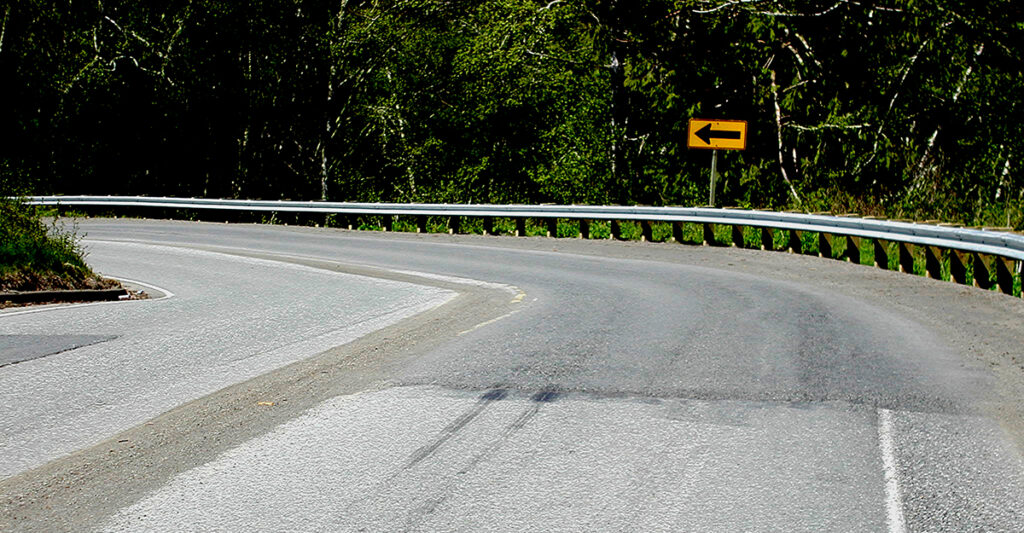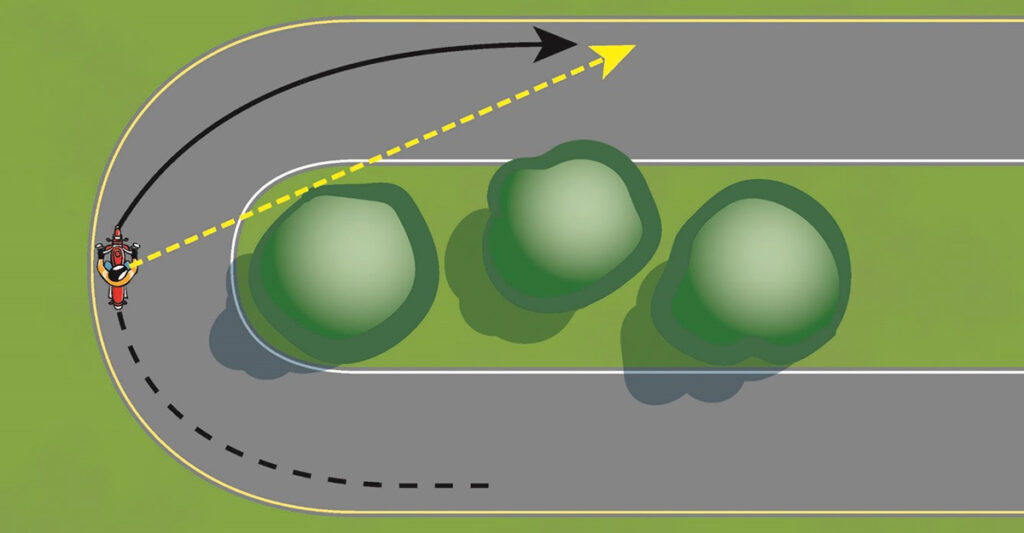The Problem
Running wide in a corner is the most common cause of motorcycle fatalities in Oregon. We’ve got great roads – smooth, well-marked and curvy – but one mistake can put you into rocks, the trees, or … over the falls.
Many times it’s not the first curve that’s the problem. It’s the second or third in a series of curves that sucks you in, chews you up and spits you out.


The Problem Behavior
While we can’t take the curves out of the road (nor would we want to!), we can change our approach. There are innumerable reasons for missing a curve, but most point to one problem behavior: Being unprepared. When unprepared riders – whether beginners, experienced riders or experts – fail to negotiate a turn, it’s because they enter too fast, in poor position, with no exit strategy.
The Strategy
Every curve should be approached the same way: From the outside, at a safe entry speed, with an eye for the exit. An outside position provides the best line of sight and widest radius. A safe entry speed is one that allows you to slow or stop if the turn goes wrong. For experienced riders in good conditions, safe entry speed might be the curve’s advisory speed or just below it. The exit is where the curve ends.
As you round the turn, continue to hold your outside line and entry speed until you know where curve leads. Don’t accelerate until you can see the exit – that’s your target.
And beware: Sometimes the exit is a nice, long straightaway … but sometimes it’s another curve, in the opposite direction. At that point your target is no longer the curve’s exit. Now it’s the entrance to the next turn.

If you aren’t 100 percent sure of your curve skills, it’s time to head to school. Even a basic motorcycle class will give you a leg up in the corners. For experienced riders, an advanced course is way more fun. Take your pick of our advanced training courses.
For more cornering tips, try Scenario #1 in What Would You Do?